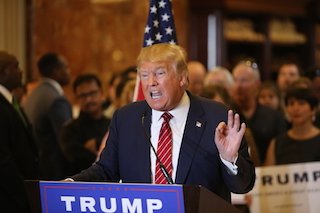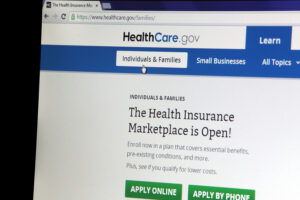Now that Donald Trump has been elected the 45th President of the United States, just how long will it take for Obamacare to be repealed? And will the DOL’s Fiduciary Rule be relegated to the scrap heap before it even takes effect?
While numerous campaign promises (immigration reform, tax reform, renegotiating trade deals, investing in infrastructure, canceling payments to UN climate change programs) will compete for attention from the administration in its infancy, killing the ACA and the DOL rule seem like safe bets as early priorities.
Let’s start with Obamacare. While “Day 1” on January 20 seems unlikely, sometime in the first 100 days isn’t out of the question. There is little doubt the Trump Administration will make repealing and replacing the 6-year-old Affordable Care Act a top focus in 2017, as he has promised to convene a special session of Congress for precisely that purpose. To get a true “repeal and replace,” Trump would need 60 votes in the Republican-controlled Senate, which would overcome a Democratic filibuster.
During the campaign, Trump proposed measures such as tax-free health savings accounts, a subsidized risk pool for people with existing health problems and allowing insurers to sell policies across state lines to boost competition.
America’s Health Insurance Plans (AHIP) said late Tuesday it would work with the new administration on health care insurance reform. “We will work across the aisle – with every policymaker and the new administration – to find solutions,” the statement said.
Comments? Please visit this thread: Trump Won, Vows Day 1 Full Repeal
More coverage of this issue:
• NPR: Trump can kill Obamacare with or without help from Congress
• Washington Post: Obamacare’s future in critical condition with Trump’s victory
• LifeHealthPro: What a Trump presidency means for the ACA
DOL rule dead or alive?
While the future of Obamacare is decidedly in jeopardy, there’s a quite a bit more uncertainty regarding the DOL Fiduciary Rule, set to begin taking affect on April 10, 2017.
Prior to the election, Trump adviser Anthony Scaramucci, managing partner of Skybridge Capital, said a Trump administration would repeal the controversial rule.
But with the rule so far along in the process and so many other pressing issues likely to face the Trump Administration in early 2017, will this one be a squeaky enough wheel to get the grease?
Many people close to the issue, including Knut A. Rostad, founder of the Institute for the Fiduciary Standard, say not to assume Trump will make repealing it a priority.
Large and small firms impacted by the rule – likely expecting a Clinton win right up until election night – have been preparing for months to comply with the new rule.
“This rule is becoming effective within 80 days of when Trump becomes president,” Marcia Wagner, a lawyer with the Wagner Law Group, told MarketWatch on Wednesday. “I would find it really hard to believe that he’s going to spend any of his capital on the conflict-of-interest rule in his first 100 days… I can’t imagine making the Herculean effort to revoke or replace this in his first 100 days in office, not when he has so many other pressing issues. I can’t imagine this is going to be on the top of his hit parade.”
The DOL fiduciary rule survived a legal challenge from the National Association for Fixed Annuities (NAFA) on Nov. 7 after a federal district court decision upheld the rule, which NAFA is appealing to the D.C. Circuit Court of Appeals.
“We are obviously disappointed by the court’s decision, but we have always assumed this case would get decided by a higher court and we are pleased the issues will get de novo review by the Circuit Court,” said Chip Anderson, Executive Director of NAFA. De novo review means the appellate court will consider the case without being bound or influenced by the lower court’s decision.
NAFA filed its lawsuit last June seeking a preliminary injunction to stay the April initial implementation of the rule. Judge Randall Moss denied the preliminary injunction and at the same time ruled in favor of the DOL on the merits in upholding the rule.
NAFA’s lawsuit, one of four lawsuits against the rule, challenges the DOL’s authority to issue the rule, asserts the rule creates an impermissible private right of action, contends the rule contains unconstitutionally vague requirements that compensation be reasonable, and alleges the manner of adoption of the rule by DOL was arbitrary and capricious.
“NAFA believes the fiduciary rule will disrupt the distribution and availability of fixed annuities and have a particularly adverse impact on the low and middle income consumers who have come to rely on these valuable retirement savings products,” said Anderson.
More new coverage of this issue:
• InvestmentNews: Trump Victory puts DOL fiduciary rule in limbo
• ThinkAdvisor: Trump, GOP could torpedo DOL rule, Dodd-Frank
• OnWallStreet: Fiduciary rule ‘in jeopardy’ under Trump
• LifeHealthPro: DOL rule faces certain death under President Trump
• CNBC: Fiduciary rule for advisors up in air after Trump’s victory
• Reuters: Trump presidency throws retirement advice rule into question








